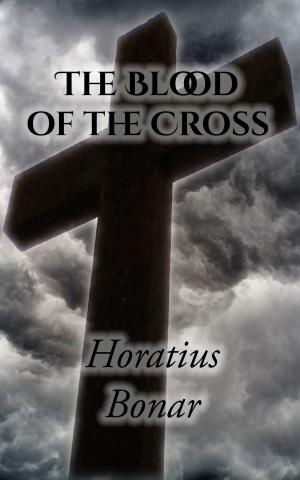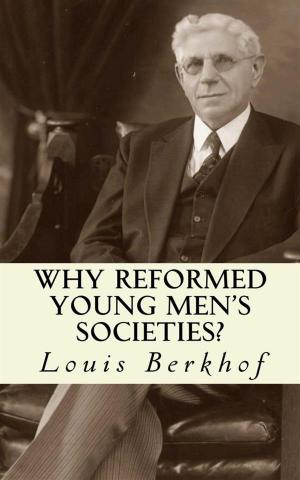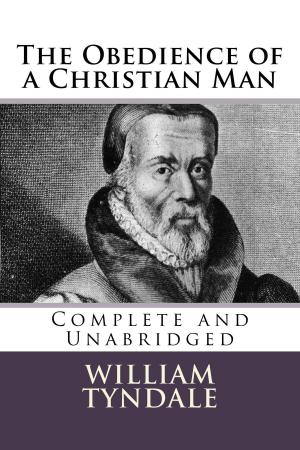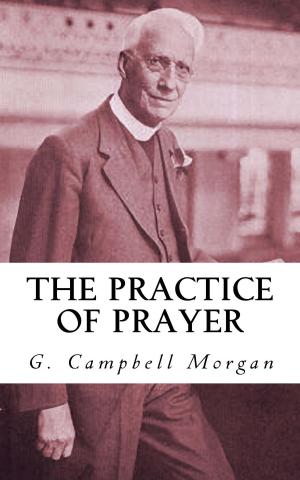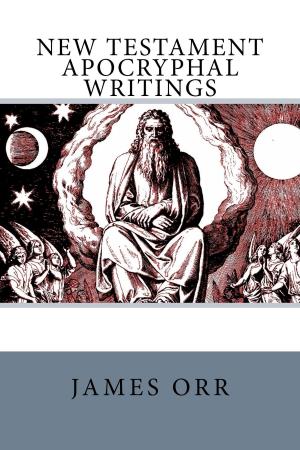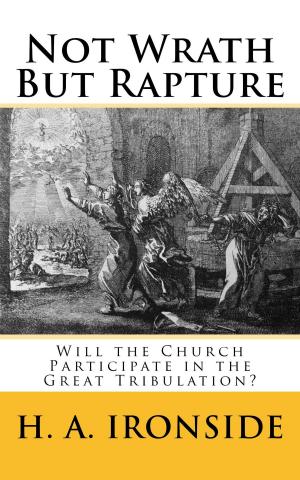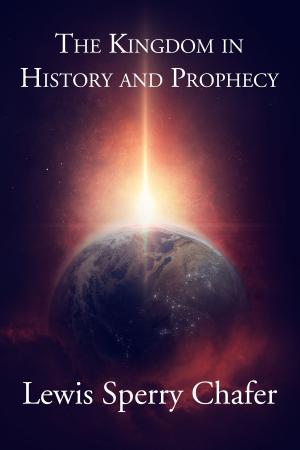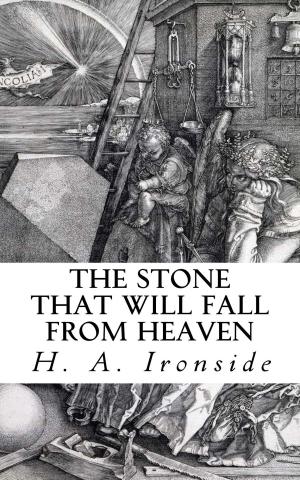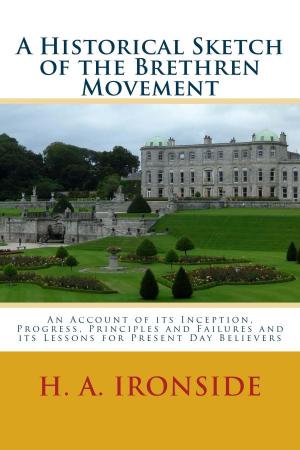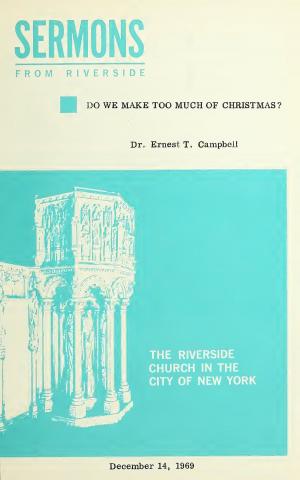The Virgin Birth of Our Lord
Nonfiction, Religion & Spirituality, Holidays, Christmas, Christianity, Bible & Bible Studies| Author: | B. W. Randolph | ISBN: | 9788829563173 |
| Publisher: | CrossReach Publications | Publication: | November 29, 2018 |
| Imprint: | Language: | English |
| Author: | B. W. Randolph |
| ISBN: | 9788829563173 |
| Publisher: | CrossReach Publications |
| Publication: | November 29, 2018 |
| Imprint: | |
| Language: | English |
This paper was read before the S. T. C. on March 10th of this year, at one of the ordinary meetings of the Brotherhood. It is published now in the hope that it may thus reach a wider circle.
To suppose that any one can hold the Catholic doctrine of the Incarnation without believing the miraculous Conception and Birth, is, in the writer’s opinion, a delusion. There is no trace in Church History, so far as he is aware, of any believers in the Incarnation who were not also believers in the Virgin-Birth. The modern endeavour to divorce the one from the other appears to be part of the attempt now being made to get rid of the miraculous altogether from Christianity.
Professor Harnack appears to urge us to accept the “Easter message” while we need not, he thinks, believe the “Easter faith.” He means apparently by this that we can deny the literal fact of our Lord’s Resurrection, while we may believe in a future life. What St. Paul would really have said to a Christianity such as this seems to be plain from his words to the Corinthian converts who were denying the Resurrection in his day: “If Christ be not risen, then is our preaching vain, and your faith is also vain.”
Deny the Resurrection of our Lord, and you take away the key-stone from the Apostolic preaching, and the whole edifice falls to the ground. Any unprejudiced reader of the sermons and speeches of St. Peter and St. Paul in the Acts will surely recognize how true this is.
Similarly in regard to the human Birth of our Lord. Once admit that He was born as other men, and the Incarnation fades away. A child born naturally of human parents can never be God Incarnate. There can be no new start given to humanity by such a birth. The entail of original sin would not be cut off, nor could the Christ so born be described as the “Second Adam—the Lord from heaven.” Christians could not look to such a one as their Redeemer or Saviour, still less as the Author to them of a new spiritual life.
Another man would have appeared among men, giving mankind the example of a beautiful human life, but unable in any other way to benefit the race of men. Further, a Christ such as this would not be a perfect character, for if the Gospels are to be believed, He said things about Himself and made claims which no thoroughly good man could have a right to make unless he were immeasurably more than man.
While these pages were passing through the press, the eye of the present writer was caught by the following words in a letter of Bishop Westcott, which seem to have a special significance at this time:—“I tried vainly to read ——’s book.… He seems to me to deny the Virgin-Birth. In other words, he makes the Lord a man, one man in the race, and not the new Man—the Son of Man, in whom the race is gathered up. To put the thought in another and a technical form, he makes the Lord’s personality human, which is, I think, a fatal error.”
B. W. R.
Theological College,
Ely,
Feast of St. Mark, 1903.
CrossReach Publications
This paper was read before the S. T. C. on March 10th of this year, at one of the ordinary meetings of the Brotherhood. It is published now in the hope that it may thus reach a wider circle.
To suppose that any one can hold the Catholic doctrine of the Incarnation without believing the miraculous Conception and Birth, is, in the writer’s opinion, a delusion. There is no trace in Church History, so far as he is aware, of any believers in the Incarnation who were not also believers in the Virgin-Birth. The modern endeavour to divorce the one from the other appears to be part of the attempt now being made to get rid of the miraculous altogether from Christianity.
Professor Harnack appears to urge us to accept the “Easter message” while we need not, he thinks, believe the “Easter faith.” He means apparently by this that we can deny the literal fact of our Lord’s Resurrection, while we may believe in a future life. What St. Paul would really have said to a Christianity such as this seems to be plain from his words to the Corinthian converts who were denying the Resurrection in his day: “If Christ be not risen, then is our preaching vain, and your faith is also vain.”
Deny the Resurrection of our Lord, and you take away the key-stone from the Apostolic preaching, and the whole edifice falls to the ground. Any unprejudiced reader of the sermons and speeches of St. Peter and St. Paul in the Acts will surely recognize how true this is.
Similarly in regard to the human Birth of our Lord. Once admit that He was born as other men, and the Incarnation fades away. A child born naturally of human parents can never be God Incarnate. There can be no new start given to humanity by such a birth. The entail of original sin would not be cut off, nor could the Christ so born be described as the “Second Adam—the Lord from heaven.” Christians could not look to such a one as their Redeemer or Saviour, still less as the Author to them of a new spiritual life.
Another man would have appeared among men, giving mankind the example of a beautiful human life, but unable in any other way to benefit the race of men. Further, a Christ such as this would not be a perfect character, for if the Gospels are to be believed, He said things about Himself and made claims which no thoroughly good man could have a right to make unless he were immeasurably more than man.
While these pages were passing through the press, the eye of the present writer was caught by the following words in a letter of Bishop Westcott, which seem to have a special significance at this time:—“I tried vainly to read ——’s book.… He seems to me to deny the Virgin-Birth. In other words, he makes the Lord a man, one man in the race, and not the new Man—the Son of Man, in whom the race is gathered up. To put the thought in another and a technical form, he makes the Lord’s personality human, which is, I think, a fatal error.”
B. W. R.
Theological College,
Ely,
Feast of St. Mark, 1903.
CrossReach Publications


